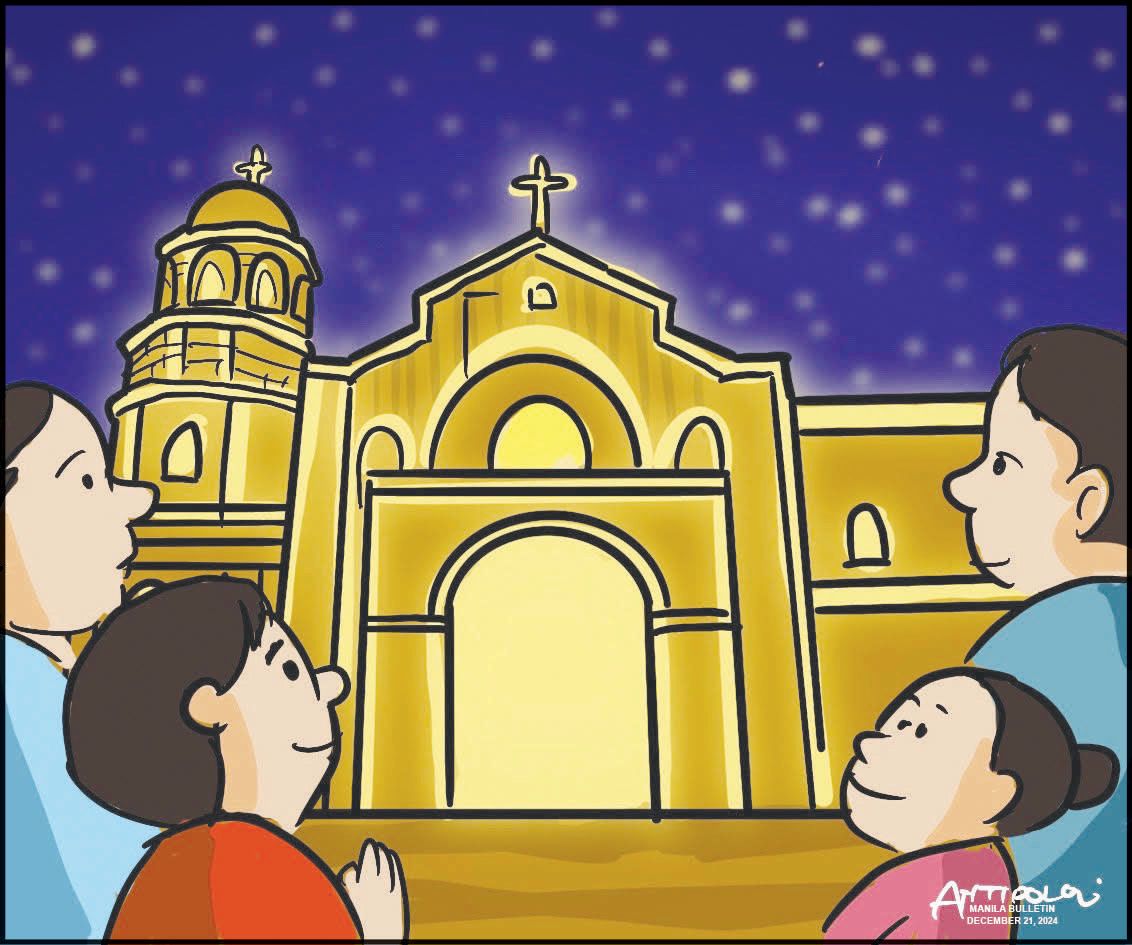
Today is the sixth day of Simbang Gabi, a most cherished holiday tradition that shows no sign of being overtaken by end-of-the-year tasks. Churches for the dawn and evening masses are still full, and in many parts of the world where a Filipino community resides, Simbang Gabi is held from Dec. 16 and culminates with the “Misa de Gallo” on Christmas Eve.
A popular Christmas song says the tradition grows because for many, it starts as a “grown-up Christmas wish.” For Catholic Filipinos, asking (or praying) for this holiday wish takes on a very concrete form in the nine-day Simbang Gabi.
Simbang Gabi is a series of novena masses celebrated as a special way of preparing for the birth of Christ. From the Latin word for nine, a novena is any form of prayer or custom that is practiced nine days prior to a feast in the Church. In the case of Christmas in the Philippines, this novena takes on nine very early morning masses in honor of the Blessed Virgin Mary.
Simbang Gabi is one of the longest running holiday traditions in the country, with origins coming from the Spanish times, when the Church made it possible for rural folk to attend daily masses leading up to Christmas before their work day started. These dawn masses, traditionally celebrated before the sun comes up (which is around 4 a.m. in some provinces), have since grown into something more than just a novena.
For many, Simbang Gabi is as much a social activity as it is a religious practice. Not setting aside its devotional aspects, many Filipinos attend these series of nine masses as a celebration of relationships, whether as a family custom or as an activity with friends. Incidentally, eating bibingka has become a highlight in the Simbang Gabi custom, with vendors of this Christmas delicacy waiting for churchgoers to finish the mass.
There is also the practice of making a wish in completing the novena masses. Filipinos, particularly those of the younger generations, attend Simbang Gabi with this in mind — to make a wish for Christmas. Completing the nine masses, many believe, becomes an imperative to be able to make this Christmas wish. Thankfully, these Simbang Gabi also have anticipated versions, or masses celebrated preceding the actual day. This is why Dec. 15 is the beginning of Simbang Gabi for some Filipinos.
At a time when religious customs seem to be no longer relevant for many, this practice also embodies the strong devotion of Filipinos. It takes a great deal of effort, after all, to attend Simbang Gabi, whether it be in the early morning or as an anticipated mass in the evening. In the case of the former, this entails waking up early and getting ready to go to work after Simbang Gabi. With the latter, it means postponing the chance to go home early after work and making one’s way instead to the church to attend mass.
Ultimately, Simbang Gabi is an echo of the Filipino’s anticipation for Christmas, which is the most popular holiday in the country. This anticipation, in its purest sense and as it is expressed in attending the nine day masses, is the Pinoy’s way of honoring the Baby Jesus even before the day of his birth.
Simbang Gabi, as the Filipino Christmas song goes, “simula ng Pasko sa puso ng bawat Filipino.” (is the start of Christmas in the hearts of every Filipino).